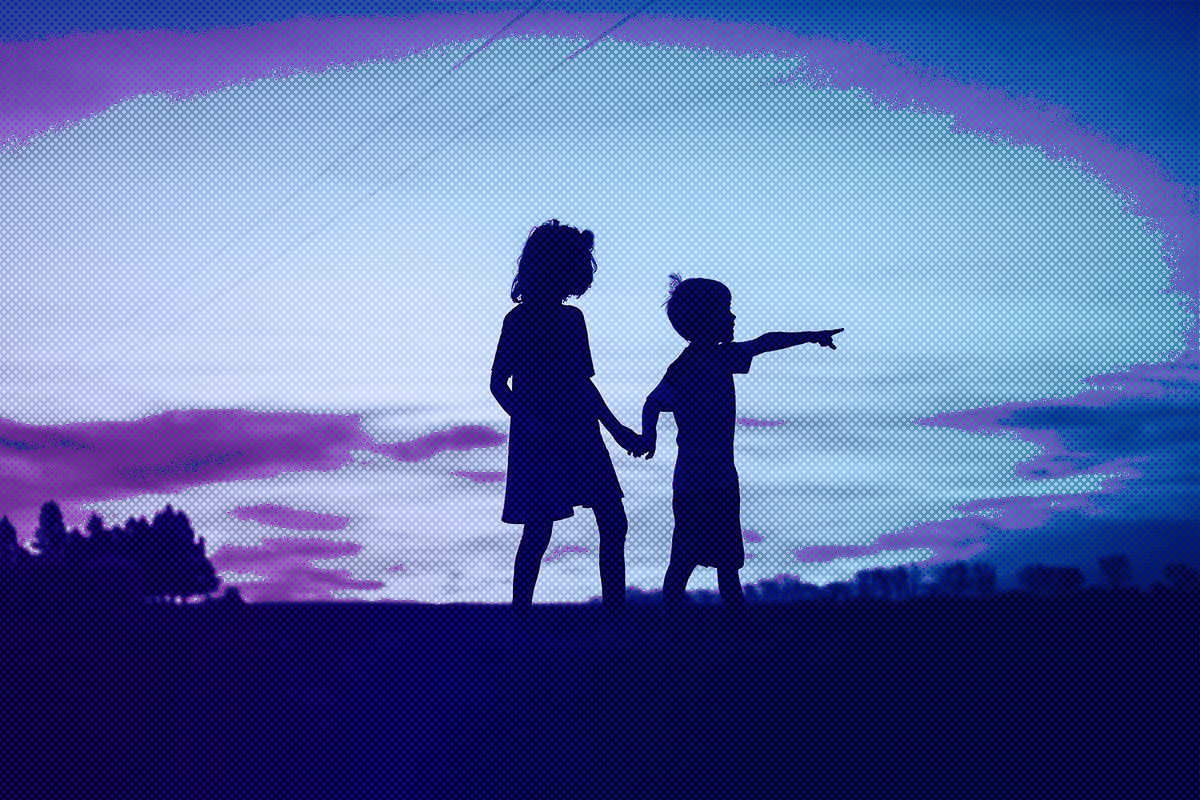Suffering from a mental illness or disability can be painful. Fortunately, however, there’s a wide array of organizations available that provide treatment and support, including Here.Now. and Yachad.
But what about these individuals’ family members?
Supporting a child with chronic life obstacles can be physically and emotionally draining, and it can be especially hard for siblings who feel helpless in situations they’re not equipped to navigate. But two Jewish teens, Jessica Goldberg and Katelyn McInerney, noticing the lack of safe spaces to express their emotions, created organizations to better themselves and their community.
For their pioneering work, both McInerney and Goldberg are recipients of the 2019 Diller Teen Tikkun Olam Awards. Let’s meet them:

As a sibling of someone with a mental illness, Jessica Goldberg, 17, understands the difficulties of being in a supportive role. Watching her brother struggle with his mental health over the past 10 years led to her own feelings of anger, frustration, and resentment.
“Siblings have no resources in the mental health community,” Goldberg said. “Though the impact on their lives is significant and tremendously challenging.”
Desperate for help, the Michigan teen scanned the internet — to no avail — on how to cope with her complicated emotions. So, she took matters into her own hands.
“As a sibling, I found no resources that met my needs,” Goldberg said. “I hit a breaking point, and instead of continuing my search for a safe space, I decided to create one.”
In 2016, Goldberg founded Sib4Sib, an organization that provides the safe space she was seeking for siblings to share their stories. Sib4Sib connects people as young as 6 years old with resources they need to support their mental health, and the organization also provides them with tools to actively support their siblings.
The support groups are led by licensed mental health professionals and use workshops, community events, ad campaigns, and public presentations to raise awareness for siblings in supportive roles.

Katelyn McInerney, too, was in desperate need of help. Living with a sibling with special needs meant the current freshman at North Carolina State University spent many a day hanging around doctors’ waiting rooms.
“My sister’s disability introduced me to the world of ‘special needs,” McInerney, 18, said. “I grew up witnessing first-hand her unique struggles.”
McInerney quickly realized that there were countless other brothers and sisters just like her. Other kids filled the seats around her in the waiting rooms, hoping and waiting for their siblings to get the treatment they needed. They felt just as scared, alone, and powerless as McInerney did.
There was an urgent need for a sibling support group, but like Goldberg, McInerney couldn’t find anything useful online. So she started her own.
Special Siblings is a non-profit dedicated to giving children with special needs siblings a space to unpack their family struggles. Monthly support groups are led by volunteer experts who facilitate safe spaces for expressing emotions, and they also lead activities to build emotional skills like empathy and understanding.
Children with special needs are often bullied and stigmatized, McInerney said, and although these issues get a lot of attention, their siblings do not.
“These ‘special siblings’ experience feelings of helplessness, frustration, loneliness, guilt, and anger as a result of the way their siblings are treated,” McInerney said. “They are often required to support their special needs siblings, but no one supports them.”
The point of Special Siblings is to give these brothers and sisters the space to express and process their complicated emotions.
“At its core, the organization forms a safe community for participants to express themselves and feel understood.”
Mazel tov, Jessica and Katelyn!








